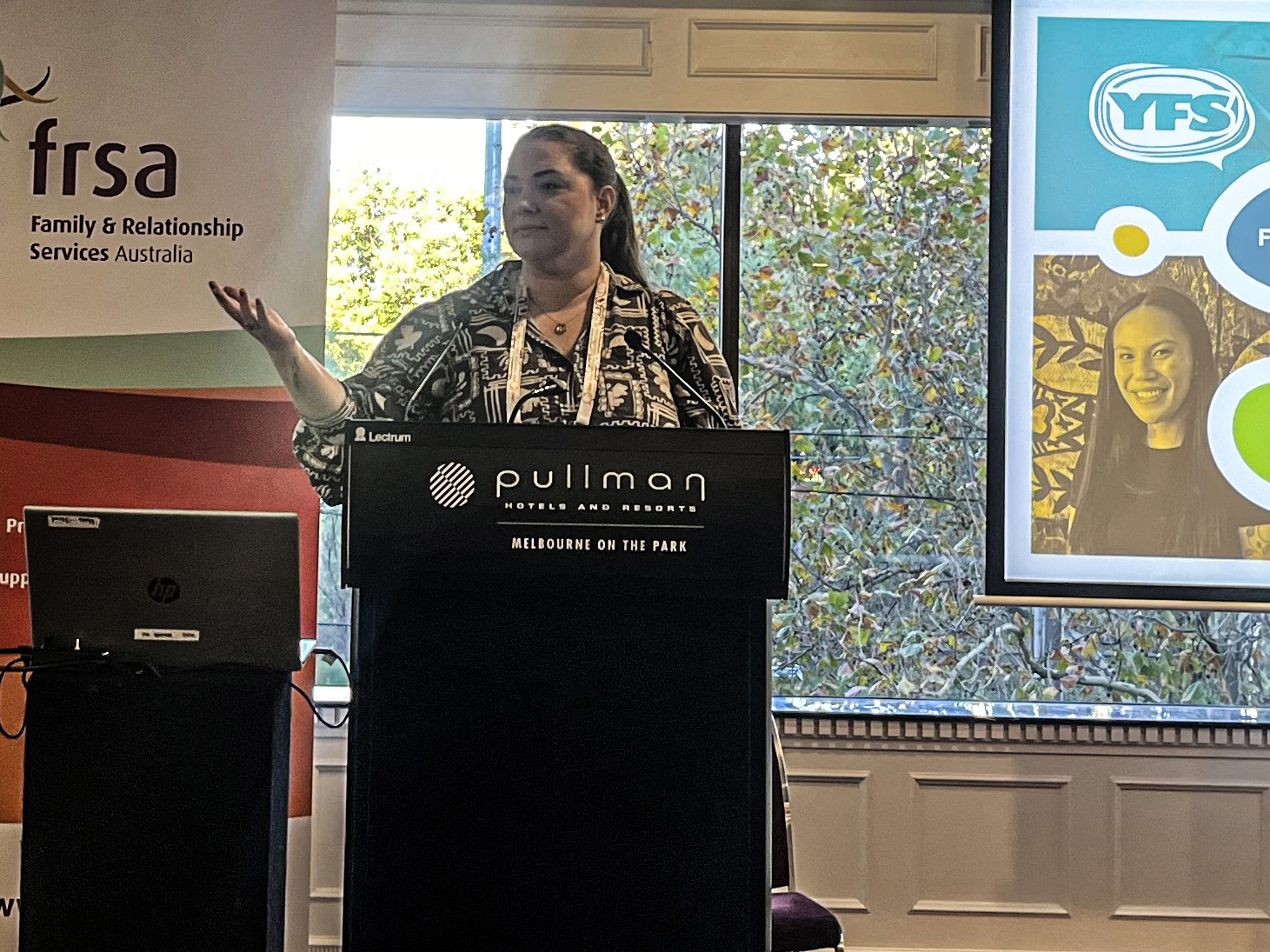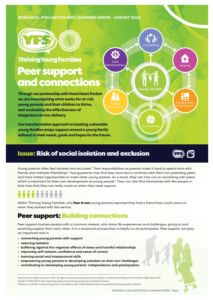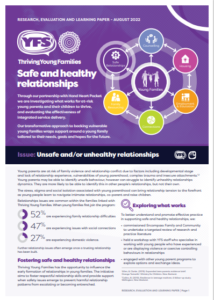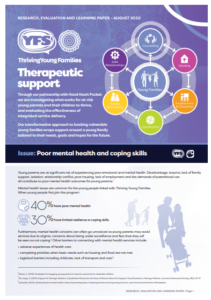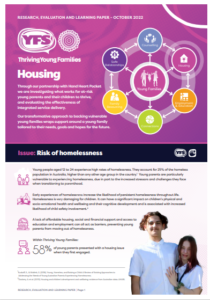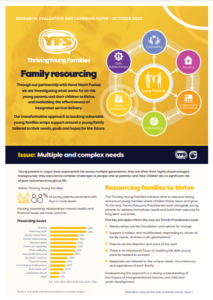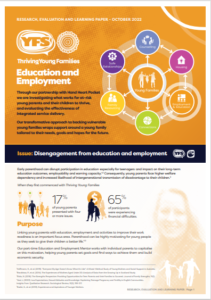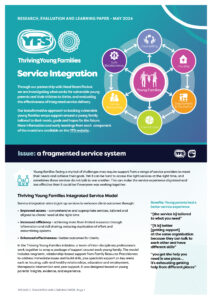Amy Blair, YFS’ Program Manager – Young Families, spoke recently at the Family and Relationship Services National Conference about the Step by Step Thriving Young Families initiative.
In 2021 YFS embarked on a significant transformation project to understand what works to back young parents and their children to thrive.
Developed in partnership with Hand Heart Pocket the Charity of Freemasons Queensland, the Thriving Young Families initiative wraps a package of support around a young family tailored to their needs, goals and hopes for the future.
The model brings together long-term, relationship-based support to address immediate issues and build skills, with specialist support in areas such as housing, safe and healthy relationships, education and employment, therapeutic intervention and peer support. It was designed based on young parents’ insights, evidence, and experience.
Since 2021 YFS’ Evaluation Manager, Katie McDonald has been monitoring the progress of the project and key factors to ensure program effectiveness.
You can read a summary of the integration learning papers on our website Thriving young families – YFS or read the full conference paper in the FRSA 2024 conference journal Conference e-Journals – FRSA


